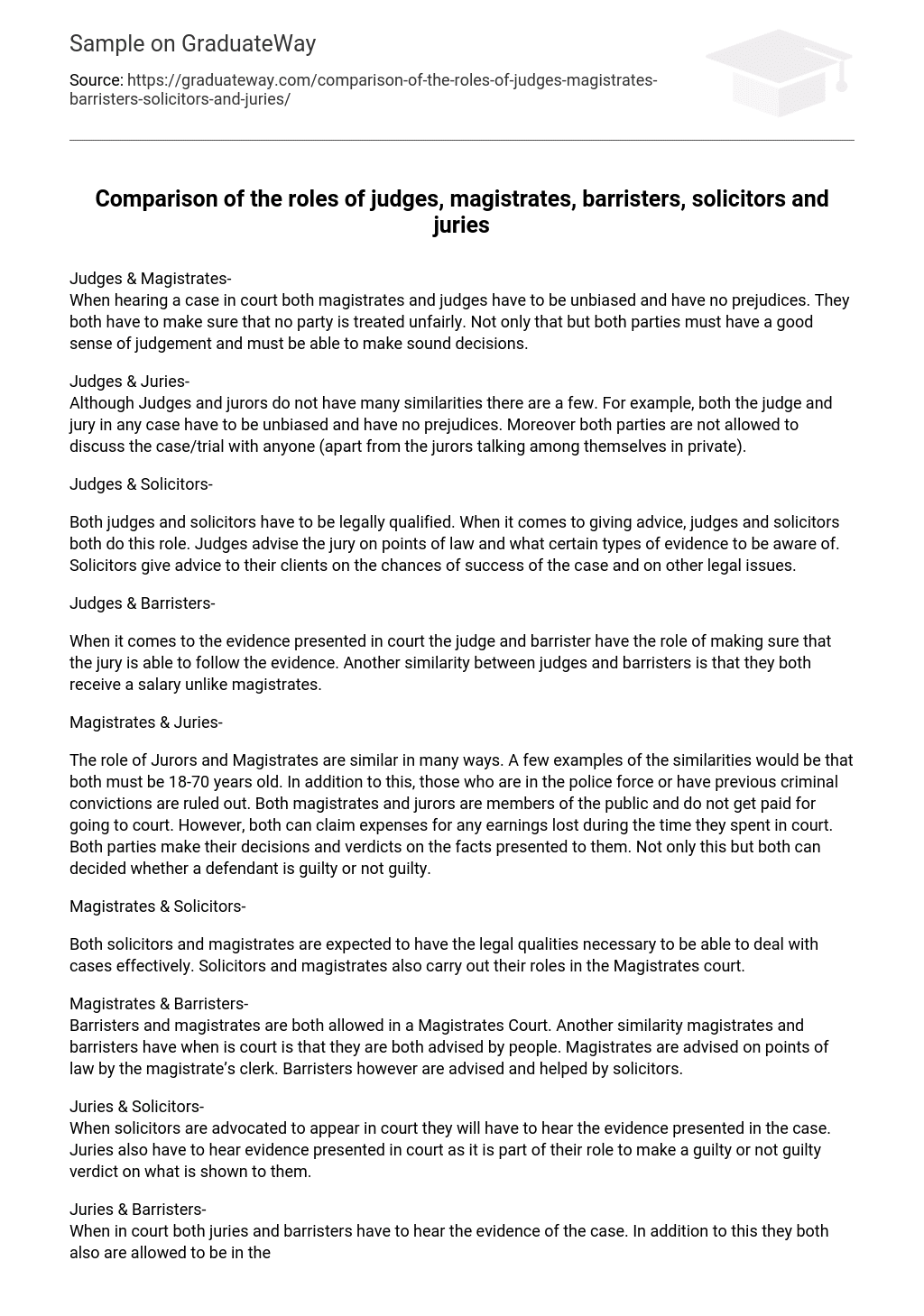Judges and Magistrates –
When hearing a case in court, both magistrates and judges have to be unbiased and have no prejudices. They both have to make sure that no party is treated unfairly. Not only that, but both parties must have a good sense of judgment and must be able to make sound decisions.
Judges & Juries –
Although judges and jurors do not have many similarities, there are a few. For example, both the judge and jury in any case have to be unbiased and have no prejudices. Moreover, both parties are not allowed to discuss the case/trial with anyone (apart from the jurors talking among themselves in private).
Judges and solicitors-
Both judges and solicitors have to be legally qualified. When it comes to giving advice, both judges and solicitors fulfill this role. Judges advise the jury on points of law and on what types of evidence to be aware of. Solicitors give advice to their clients on the chances of success in their case and on other legal issues.
Judges and Barristers –
When it comes to the evidence presented in court, the judge and barrister have the role of making sure that the jury is able to follow the evidence. Another similarity between judges and barristers is that they both receive a salary, unlike magistrates.
Magistrates and Juries –
The roles of jurors and magistrates are similar in many ways. A few examples of the similarities would be that both must be between 18 and 70 years old. In addition to this, those who are in the police force or have previous criminal convictions are ruled out. Both magistrates and jurors are members of the public and do not get paid for going to court. However, both can claim expenses for any earnings lost during the time they spend in court. Both parties make their decisions and verdicts based on the facts presented to them. Not only this, but both can decide whether a defendant is guilty or not guilty.
Magistrates and solicitors –
Both solicitors and magistrates are expected to have the legal qualities necessary to deal with cases effectively. Solicitors and magistrates also carry out their roles in the Magistrates’ Court.
Magistrates & Barristers –
Both barristers and magistrates are allowed in a Magistrates Court. Another similarity between magistrates and barristers in court is that they both receive advice from others. Magistrates are advised on points of law by the magistrate’s clerk, while barristers are advised and assisted by solicitors.
Juries & Solicitors –
When solicitors are called to appear in court, they will have to listen to the evidence presented in the case. Juries also have to hear the evidence presented in court as it is part of their role to make a guilty or not guilty verdict based on what is presented to them.
Juries & Barristers –
When in court, both juries and barristers have to hear the evidence of the case. In addition to this, they are both also allowed to be in the higher courts, such as the Crown Court.
Solicitors & Barristers –
Both barristers and solicitors are different types of lawyers. They can both appear in lower courts such as magistrates’ court and country court. Moreover, they can both appear in court, although it is rare for a solicitor to do so. Both solicitors and barristers can be approached by the public, although this is very rare in a barrister’s case. Another similarity between solicitors and barristers, even though it is not a role similarity, is the fact that they both get paid on a case-by-case basis.





